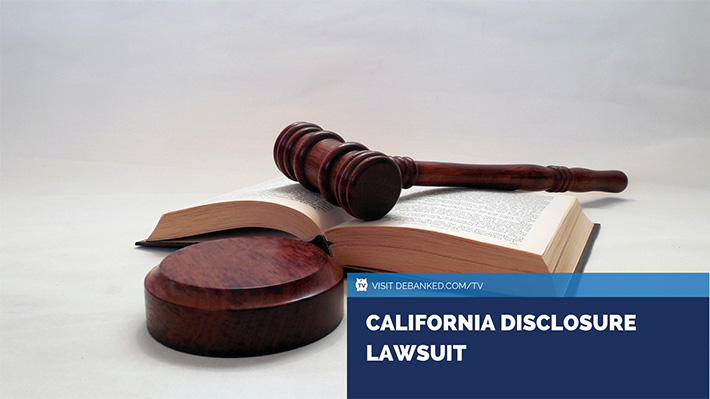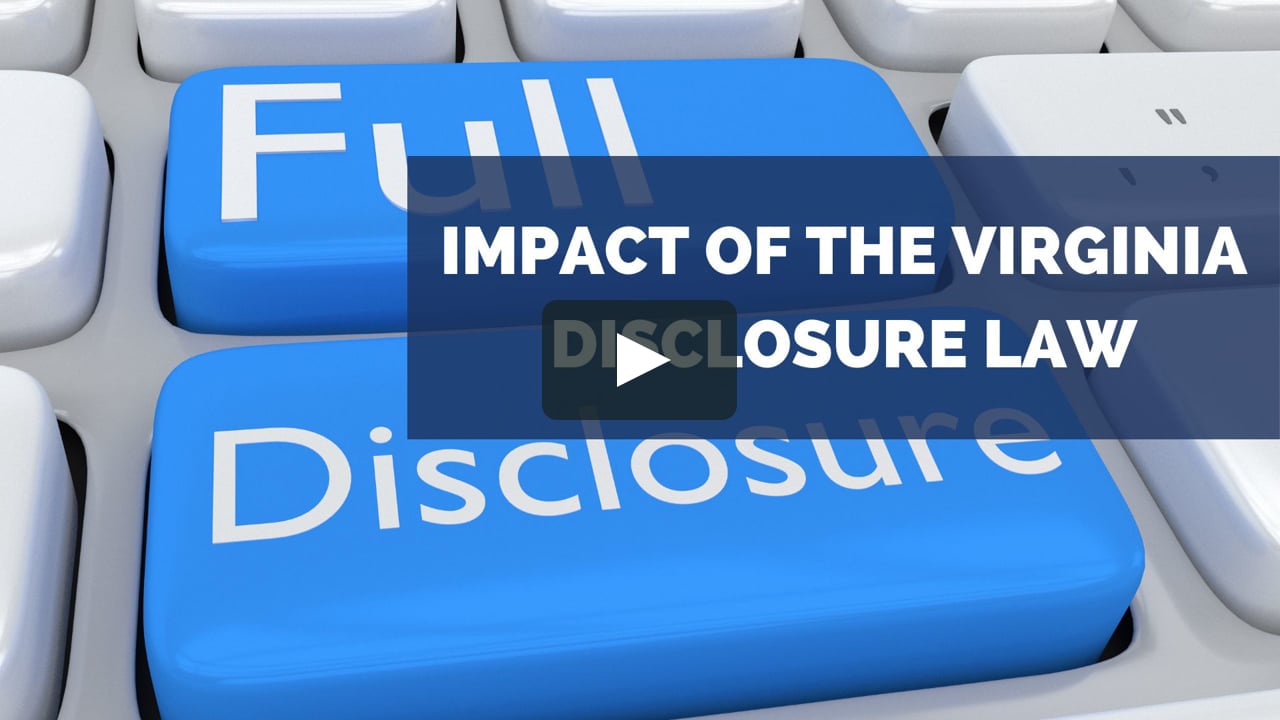Related Headlines
| 07/16/2024 | Kansas added to disclosure service tool |
| 06/26/2024 | CT disclosure law kicks in July 1 |
| 06/11/2024 | CT disclosure form is published |
| 01/04/2024 | Will PA adopt a disclosure law? |
| 12/06/2023 | CA wins disclosure law lawsuit |
Related Videos
CA Disclosure Lawsuit Decision | Impact of the Virginia Disclosure Law |
Discussing the California Disclosure Law | New York Disclosure Law Delay |
Stories
New Jersey Tries Commercial Financing Disclosure Bill Again
October 17, 2024For the 7th year in a row the legislature in New Jersey is trying to pass a commercial financing disclosure bill. While a notable component is an APR requirement it also applies a broad warning to brokers.
A broker shall not make or use:
(1) any false or misleading representations or omit any material fact in the offer or sale of the services of a broker or engage, directly or indirectly, in any act that operates or would operate as fraud or deception upon any person in connection with the offer or sale of the services of a broker, notwithstanding the absence of reliance by the buyer; or
(2) any false or deceptive representation in its business dealings.1
The full language can be found here.
Louisiana Introduces Commercial Financing Disclosure Bill
March 3, 2024Louisiana is the latest state to introduce a commercial financing disclosure bill. SB 335 is a copy & paste of the law that recently passed in Florida.
Other states with pending legislation on the subject include Missouri, Kansas, Illinois, and Maryland.
You can read the Louisiana bill here.
SBFA Appeals Decision in Disclosure Law Lawsuit
January 2, 2024The Small Business Finance Association will appeal the decision issued in its case against the California DFPI over the legality of its disclosure laws.
The SBFA filed its suit in December 2022, alleging that the disclosure laws in California violated the First Amendment and that they were pre-empted by a federal law (TILA) that governs APR calculations. After the Court initially allowed the case to proceed in March 2023, it reversed course and dismissed the SBFA’s lawsuit in December.
On December 29, the SBFA filed its notice of appeal to the United States Court of Appeals for the Ninth Circuit.
Missouri Resurrects its Commercial Financing Disclosure Bill
December 10, 2023For the third time, a commercial financing disclosure bill has been introduced in Missouri. Senate Bill 753, introduced this month, is nearly identical to SB 187 which failed to gain traction this year.
A staple of the bill is its broker licensing requirement, which would require an annual renewal. Brokers would not be able to broker any deals for Missouri merchants until they were registered.
California Eliminates The Disclosure Law’s Sunset Date
September 25, 2023When California passed its landmark commercial financing disclosure law in 2018, some theorized that it was all just a five-year experiment. That’s because legislators wrote into the statute that the APR component of disclosures would only be required until January 1, 2024 and would then automatically be repealed. Then something unexpected happened, it took four years just to put the law into effect. And so with the clock ticking down toward repeal, California’s legislature passed a law last week that removes that line from the statute entirely. Now there is no sunset date. It’s permanent.
Although deBanked has learned that many providers are complying with the disclosure law, not everyone believes that doing so helps business owners or that its requirements are constitutional.
Meanwhile, California also passed ANOTHER commercial financing bill last week, Senate Bill 666, which you can read about here.
The New York Disclosure Law is Here
August 1, 2023 The New York commercial financing disclosure law has arrived. Are you in compliance with it?
The New York commercial financing disclosure law has arrived. Are you in compliance with it?
The 53-page requirements can be viewed here.
While the law is similar to the one recently rolled out in California, there may be some key differences. Your best bet is to contact a lawyer that is equipped to help you with this very thing. If you need a recommendation for one, email me at sean@debanked.com.
If you have no idea what this disclosure law thing in New York is all about, you need to catch up ASAP! This law was passed in 2020 and went through a formal rule-making process that lasted years. The rules were finalized on February 1, 2023 and were mandated to go into effect six months from that date.
Here’s a map of what you should be paying attention to right now!
Florida Disclosure and Broker Law Signed by Governor, But Will The Effective Date Be Revised?
June 26, 2023Florida’s governor signed H1353 into law on Friday, a set of disclosure rules that will impact both brokers and funders. One key element of it was drawn from the DailyFunder forum, for example.
As written, the law says it is supposed to go into effect on July 1, 2023. One wonders given the timeline if that will be extended to give the industry an opportunity to even understand what the requirements are.
Florida has now been updated on the deBanked regulatory map.
Federal Legislators Jump on Commercial Financing Disclosure Bandwagon, Renew Push to Give CFPB Authority Over Industry
June 16, 2023 Feel like there’s a lot of state-level disclosure going around lately? Well now some members of Congress believe another layer is needed at the federal level. In a bill titled the “Small Business Financing Disclosure Act of 2023,” the language looks awfully familiar. There’s a Double Dipping clause in it, for example, which was a term first seen in a New York State law.
Feel like there’s a lot of state-level disclosure going around lately? Well now some members of Congress believe another layer is needed at the federal level. In a bill titled the “Small Business Financing Disclosure Act of 2023,” the language looks awfully familiar. There’s a Double Dipping clause in it, for example, which was a term first seen in a New York State law.
The federal bill, which was introduced by US Senator Robert Menendez and Congresswoman Nydia M. Velázquez, seeks to place the small business finance industry under the authority of the Consumer Financial Protection Bureau (CFPB). As part of that, the Director (currently Rohit Chopra) would be responsible for devising all the rules and formulas, according to the bill. Furthermore, with regards to sales-based financing, the bill specifically states:
1. The provider must disclose an APR.
2. The estimated term of repayment and periodic payments based on projected sales volume must be disclosed.
“Small businesses are the lifeblood of the American economy,” said Congresswoman Velázquez. “But for too long, predatory lenders have taken advantage of businesses in need of capital by offering loans and similar products with unclear terms and exorbitant interest rates.”
Supporters of the bill, including Senator Sherrod Brown and Senator Ron Wyden, also stated that the bill is aimed at “predatory lenders.”
In Senator Menendez’s press statement for the bill, it cites Funding Circle, a small business lending company, as a supporter.
“We believe a free and fair market operates most efficiently when there is transparency in pricing, terms and conditions,” said Ryan Metcalf, Head of U.S. Public Affairs at Funding Circle U.S. When a small business has all of the necessary information up front including the annual percentage rate (APR), they can comparison shop and make informed decisions that are best for their business. Funding Circle supports one national uniform small business financing disclosure law because it is in the best interests of small businesses and interstate commerce.”
The push for a small business financing bill is not new. A similar bill introduced by Velázquez last year did not move forward, nor did the one from 2021, nor the one from 2019. The difference is that previous versions focused on Confessions of Judgment and fairness in small business lending. The latest version takes on the air of disclosure while attempting to subjugate the whole industry to CFPB regulatory authority.

LOL, those are my leads... disclosures about who you are, are required or account will be banned., , i am a lead broker out of philadelphia, apparently one of my clients is buying my stuff and re-selling them. i offer those same leads ... |
See Post... disclosures about who you are, are required or account will be banned.... |
See Post... disclosures., , literally 40% of this industry man.... |

































